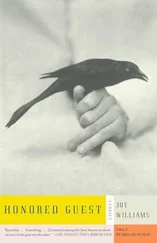The girl looks at me bleakly. “They said I had lost him yesterday night.”
“I mean it was probably a mistake that they put you in here.” The pads in this ward are double size. There are four gross of them in a box beneath my bed. They expect me to bleed a great deal.
“They make mistakes in this hospital all the time,” the girl says animatedly. “I had a friend and he came into Emergency with a broken leg and they set the wrong one.”
“I’ve heard that,” I say. You always hear that.
“I had a friend and he had one good eye and one bad eye and he had to have an operation to have the bad one removed and they removed the other one instead.”
“Which one?” I say.
She raises her bed until she is almost perpendicular. “What’s your baby’s name?”
“I don’t know yet.” I am aware that I don’t bleed much.
“Well, now that’s a funny thing because we couldn’t decide on a name for our baby either. Nothing goes with Apple. I mean my name is Jane Apple and my husband’s name is Wendall Apple and neither of those seemed to fit and nothing seems to fit. So we never did come up with a name. So it doesn’t seem as bad, although it is of course.”
“What?” I say. Outside, there is a laurel tree which they have pruned devastatingly so that its branches will not rub against the window.
“Just as bad.”
“The babies are coming!” a nurse cries vigorously. “The babies are coming!”
I rise dumbly from my bed and go to the sink to wash my hands. I return, dumbly. The girl pulls the curtain between the two beds and lights a cigarette.
They wheel the train of babies down. They distribute them. Later they are collected and returned to the nursery. Then there is dinner. Then it is night. At some time in the following hours, a figure invariably appears at the doors and says, “Anything for discomfort?” No one, to my knowledge, has ever replied one way or the other.
The baby is brought to me shortly before midnight. She is bitter, outraged. A core of willful heat. Her head is damp. She cries without moving, without hope of satisfaction.
“Why is her hair wet?” I ask.
“It’s not wet. She’s just been crying, that’s all.”
The baby and I lie and watch the butchered laurel tree. The baby nurses, frets, sighs. We hear ambulances arriving, doors slamming shut. Once, I think we can hear a nighthawk. It is probably not a nighthawk, but the sound of a part of the air folding shut resembles one. The baby is a strange companion in the night, fixed and exciting and untroubled.
There’s always the danger of falling asleep, they’ll tell you. In nursing, one should always assume a slightly uncomfortable position, they’ll say.
We lie and watch the laurel. Figures try to rise up between the branches but I drive them away. Somewhere in this town now, there is an animal that hunts incessantly. I tell the baby this. She is dispassionate. There are some objects that are notable by their absence from the trees. There is nothing that can be done to dispatch them. Little wombless, I say to the baby, but I cannot finish. There is no finishing.
Is it over , Grady’s breathing asks.
No, I am always answering.
The baby smells like bread. They take her away, down the dark hall. I can’t think of anything right to do , Grady had said, his words rising with the engine’s singing. The driving lamps swam against the curve ahead. There is nothing that’s right that’s left to me . I touched his hand. His hand was on the shift knob, closed against me. And then his eyes closed too. But I could see myself already beyond the curve and walking. Walking away and on the road back. Even then.
I turn on the radio. A woman is saying,
“I hope you will not think me vulgar.”
“Not at all,” “Action Line” says. He sounds a little halting, exhausted. He sounds a little querulous himself.
“My husband can only become sexually excited if he feels that some part of his body is missing.”
“Yes,” “Action Line” says.
“A finger or an eye or a leg. I have to pretend it’s not there.”
“Yes,” “Action Line” says. “Nature is one vast mirage of infinite delusion.”
The day after the tragedy, the housemother is standing on a street corner, waiting for the bus. Everyone is talking about Doreen. The town, or at least that part of it which deals with the college, is shocked. The feeling is that there must be some mistake. The entire incident is outlandish and certainly will mark the end of electing queens.
The housemother has had a fascinating day in town, talking to salesgirls and waitresses about it. She has had tea in six different restaurants and is exhausted. She is uncomfortable. She stands at the bus stop in brown low shoes, brown support hose, brown skirt and brown nylon blouse. She waits like an enormous brownie.
She cannot get over the fact that this has happened to one of her girls. She never expects anything to happen to them. Those that have graduated and gone north write and tell her that they have husbands and babies and live in carriage houses in Connecticut. She wonders what a carriage house is and why anybody would want to live in one. It seems a nigger could do better than that.
Her chin begins to move up and down. It has been doing that recently. Sometimes her entire face moves back and forth as though she is halfheartedly refusing something. When she realizes that her head is shuffling around like this on her neck, she immediately acknowledges it and turns the action into something she wants to do.
Waiting at the bus stop, the housemother sadly shakes her head. Of all her girls, Doreen seemed most eligible for a happy future. The housemother is becoming depressed. She thinks of the inaccuracy of life, of the folly and injustice of it. She thinks of the greediness of people, their rudeness and lust. All those people in Miami and Mexico and New York City, healthy and wealthy and doing sick things.
She is becoming exasperated waiting for the bus. She peers up the hot street. She does not like this part of town. It is almost in the area called Frenchtown, the colored section . Opposite her is a fruitcake factory where a northern lady was abandoned by her husband two years before. He, a gentleman in a white Oldsmobile, went to park the car and never returned. People said that the lady had stayed in and outside the factory for three days, being raped casually by roving bands of youths, and then finally and alone, had taken the train back to Forty Fort, Pennsylvania.
The smell of sugar and candied fruit hangs in the air. The housemother shifts her weight. She has to go to the bathroom. In the fruitcake factory is a machine like a printing press, pushing out loaves. Farther up the street is a bar called Daddy Meaning’s. Music drifts toward her from a record player.
My mother often told me
Angels bonded your life away
She said.
Inside, men are sitting on stools, staring at a jar full of eggs.
No one walks in the street. The housemother goes over the tragedy again in her mind. She is thinking how she will relate it in a letter to her best friend, a blue-haired widow who lives in a condominium in Sun City. Last night, before the Serenade, before poor Doreen went out to wow the boys, the housemother had begun her weekly letter. She was having a difficult time. There was not much to relate. She told her friend that she had in the act caught the cook stealing a box of graham crackers and a 100-watt bulb. She told her about the new novel she was reading, a warm and tender love story ( but with some dirty words ) that will touch your heart . She has difficulty reading because of her eyes. Many words are not clear. She thinks she may be misinterpreting some of them.
Читать дальше












